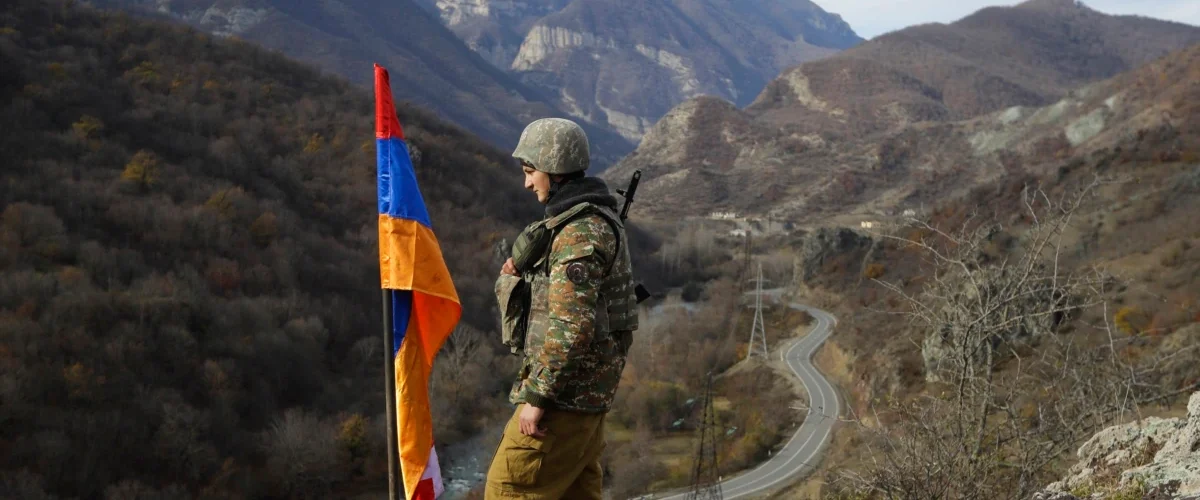Armenia accused Azerbaijan of serious human rights violations as the two Caucasus nations who fought a six-week war last year faced off at the UN court in The Hague on October 14.
Armenian representative Yeghishe Kirakosian made the accusation as a hearing opened at the International Court of Justice (ICJ) into a request by Armenia for judges to impose urgent interim measures to prevent Azerbaijan breaching an international convention to stamp out ethnic discrimination.
The case stems from last year’s war over the disputed region of Nagorno-Karabakh that left more than 6,600 people dead. The region is internationally recognized as part of Azerbaijan but had been under the control of ethnic Armenian forces since the end of a separatist war the early 1990s.
Kirakosian said Armenia wasn’t asking the court to rule on the root causes of the war, but “seeks to prevent and remedy the cycle of violence and hatred perpetrated against ethnic Armenians.”
Lawyers representing Azerbaijan were scheduled to address the court later on October 14.
Azerbaijan also has filed a similar case alleging discrimination against its citizens by Armenia and also has requested the world court to impose interim measures.
Hearings in the Azerbaijan case are scheduled to start on October 25. Rulings on both requests will likely be issued in coming weeks.
Both nations’ cases alleging breaches of the International Convention on the Elimination of All Forms of Racial Discrimination will likely take years to reach their conclusion at the ICJ.
Nagorno-Karabakh is internationally recognized as being part of Azerbaijan, but the entire territory and seven surrounding districts were controlled by ethnic Armenian forces from the end of a separatist war in 1994 until last year’s war.
The two sides have skirmished regularly over the years.
Internationally mediated negotiations under the auspices of the OSCE involving the so-called Minsk Group co-chaired by Russia, the United States, and France, have been unable to produce a lasting settlement of the conflict.
In September 2020, Azerbaijan launched a military offensive that resulted in Baku regaining control of the seven surrounding districts, and a significant chunk of Nagorno-Karabakh itself.
The conflict ended when Armenian Prime Minister Nikol Pashinian signed a Russia-brokered cease-fire agreement that granted Azerbaijan control over parts of Nagorno-Karabakh as well as adjacent territories occupied by Armenians.
Armenia says more than 3,700 Armenians and Nagorno-Karabakh residents died in the war. Azerbaijan said it lost 2,900 people.


















